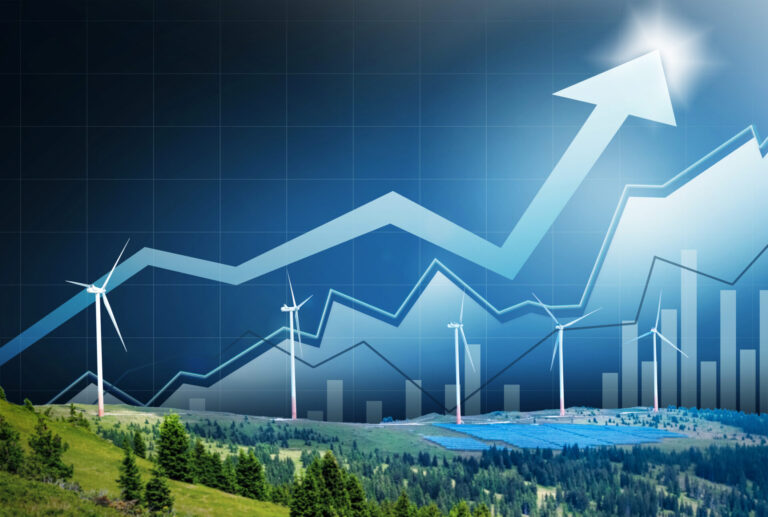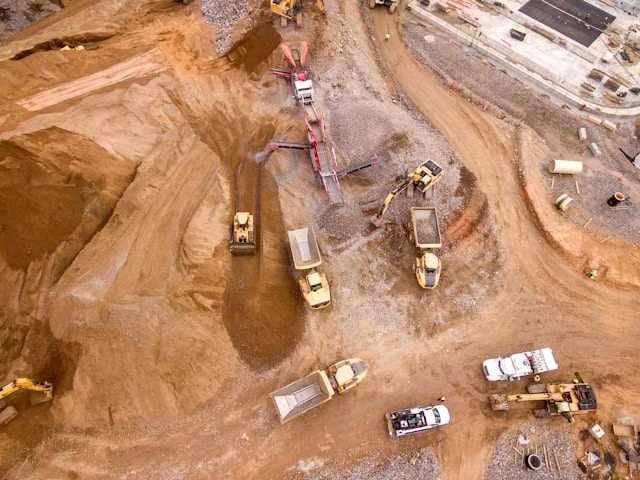Monday, June 30, 2025
In preparation of Canada’s net zero targets as per the 2030 Emissions Reduction Plan, and in parallel with the Inflation Reduction Act (IRA) in the United States, the Government of Canada is providing unprecedented financial incentives to the clean technology industry.
Climate policies are top of mind for leaders in many countries, so Canada must act now to compete to win through its climate strategy, according to a new report from the C.D. Howe Institute, a national non profit policy research organization.
In “Game On: The Implications of the US Inflation Reduction Act for Canadian Competitiveness,” author Glen Hodgson examines U.S. climate and industrial policy in the IRA, assessing its coverage and potential impacts as well as providing an assessment of the Canadian federal government’s response – most recently through Budget 2023.
The most significant initiative by the U.S. so far to address climate change, the IRA was signed into law in August 2022 and provides tax credits and other fiscal incentives to invest in and produce domestic energy sources with low or no greenhouse gas emissions, mainly clean energy. It also provides nearly US$300 billion in green finance, to be delivered by government agencies. All told, it is expected that the IRA could tilt the playing field for clean investment in North America to its advantage.
Now is the time for Canada to strengthen its competitive position.
Although the climate and industrial policy put forward in Canada’s recent federal budget does not match the overall coverage provided by the IRA, it maintains a level playing field between the two countries for certain types of clean investment, and for clean finance.
“Providing refundable tax credits for clean investment comes at a high fiscal cost, but there could be upside potential – and there was also an economic cost of not acting to level the playing field vis-à-vis the U.S., potentially resulting in lost investment, production, jobs and export opportunities,” notes Hodgson.
New cleantech credits
By all accounts, Budget 2023—A Made-in-Canada Plan: Strong Middle Class, Affordable Economy, Healthy Future offers Canadians an unprecedented range of new funds and investment opportunities to support the cleantech market, including the Canada Growth Fund—a new $15 billion arm’s-length, public investment vehicle—that will help attract private capital to build Canada’s clean economy.
Other financial credits include:
- Clean Technology Investment Tax Credit: A refundable 30% tax credit on capital cost of investments made by taxable entities in wind, solar photovoltaic and energy-storage technologies.
- Clean Electricity Investment Tax Credit: A newly announced, refundable 15% tax credit on the capital costs of investments made by non-taxable entities, such as Indigenous communities, municipally owned utilities and Crown corporations that make investments in renewable energy, energy storage and inter-provincial transmission and other non-emitting electricity infrastructure.
- Clean Manufacturing Investment Tax Credit: A new 30% refundable ITC for investment in machinery and equipment used to manufacture clean technology and extract relevant critical minerals. This tax credit is available for the manufacturing of renewable energy and energy-storage equipment, and the recycling of critical minerals.
- Clean Hydrogen Investment Tax Credit: A refundable 40% investment tax credit on green hydrogen, starting in Budget 2023.
- Net-zero Transmission Project Support: There will be an upcoming consultation on the “best means” to support intra-provincial transmission that support Canada’s net-zero grid objectives.
- Canadian Infrastructure Bank: $20 billion in support for Clean Electricity investments, including at least $10 billion through the Clean Power priority area and at least $10 billion through the Green Infrastructure priority area.
- Recapitalization of SREPs: The Smart Renewables and Electrification Pathways (SREPs) program will receive a total of $3 billion to support regional priorities and Indigenous-led projects.
“There has never been a more impactful budget in the history of Canada to fight climate change and create a clean, electrified economy. This budget outlined over $80 billion in new measures to fight climate change, starting with five major new tax credits to accelerate clean tech in Canada. This brings the total of everything we are doing to fight climate change to $200 billion,” stated Steven Guilbeault, federal Minister of Environment and Climate Change.
When it comes to the U.S. and IRA, Guilbeault counters that Canada has been on board and working towards cleantech investments for years so it’s actually the U.S. that is playing catch up. He is pleased to see their substantial investment of US$300 billion. He points out that Canada’s budget investment of $80 billion over 10 years is the largest single investment into the clean economy and brings the total to $200 billion.
“We’re investing about half of what they’re investing and yet they’re 10 times bigger than we are. So, we are punching above our weight in Canada when it comes to investment in clean technologies, fighting climate change, investing in fresh water, and investing in electrification and public transit,” points out Guilbeault.
The devil is in the details
Industry response has been positive, but many in the cleantech sector are calling for further clarity and more comprehensive support.
The Canada Cleantech Alliance is a Canadian coalition of 22 cleantech industry associations and accelerators representing over 2,000 cleantech manufacturers, innovators, investors, industry adopters and researchers across the country. It is governed by Clean Energy Canada, Écotech Québec, Energia Ventures, Foresight, the Ontario Clean Technology Industry Association (OCTIA) and the Smart Prosperity Institute.
The Canada Cleantech Alliance applauds the direction the federal government is taking with Budget 2023. According to the alliance, the many initiatives that will help Canada build a competitive clean economy, and it is a huge step forward, but there is still plenty of work to be done.
Bryan Watson is senior vice president of Venbridge (which provides financing against tax credits), founding director of OCTIA and managing director of Ontario-based CleanTech North (CTN). Watson has been working in the industry for decades and has strategic advice on how Canadian companies should seize the moment and take advantage of government incentives. He knows how to take a cleantech concept to market, including scale-up and adoption, and how to take advantage of government incentives in the process.
“We’ve got some great connective tissue that’s developed over the years, and through these partnerships and the new incentives we are exploring the art of the possible, by scaling up and connecting the dots for financing,” says Watson, who is also a partner at Flow Ventures, a boutique firm that has provided value-added scientific, research and experimental development (SR&ED) services to hundreds of companies.
“There’s no silver bullet or magic technology that’s going to solve it all. For example, when it comes to clean energy, we’re going to need a mix of renewables, storage, hydrogen and more,” says Watson.
He also points toward an uptick in new green chemistry solutions for the development of more circular alternatives, and with regard to software that caters to property tech and energy efficiency for building systems.
“The development industry is facing massive pressure to demonstrate ESG,” says Watson. “These pressures are also forcing a lot of innovation in the mining sector that is unprecedented.”
Watson recently moderated an in-depth conversation via webinar on the new federal tax credits and what they mean for the cleantech industry.
The good news about the budget? Yes, it’s the most clean budget ever and new credits were announced. The less good? There’s a limited scope of cleantech included, a slow roll out into 2024, a lack of production-related tax credits, and confusion around some of the language.
As always, the devil is in the details.
“It’s important to carefully plan and document your activities and purchases in order to maximize and substantiate your credits. If you’re unsure be sure to consult an expert to mitigate your risks so you can proceed with confidence,” advises Watson.
The consensus among the webinar panelists — Jigna Shah from Deloitte, Jonathan Garbutt of Dominion Tax Law and Lynn Côté of Export Development Canada — was that there’s a lot more we need to learn about the cleantech credits. However, there were some useful key takeaways presented:
- All credits are refundable, filed with your taxes and will be phased out over time.
- A company does not need to be a Canadian-controlled private corporation (CCPC) to generate these credits, and even non-CCPCs will generate refundable credits (unlike, for example, the SR&ED program).
- All credits will require the claimant to maintain documentation of various forms, from project plans to capital expenditures to project performance metrics.
- Carbon capture usage and storage (CCUS) and possibly hydrogen credits will be generated based on an approved project plan reviewed by Natural Resources Canada.
- It may be worth exploring partnerships, joint ventures, and/or other corporate structuring options to maximize the credits a company can accrue and ensure that all of the peripheral systems that enable the function of a particular technology generate credits.
The complicated nature of these tax credits has prompted Watson and his partners to plan a second webinar coming soon.
In the meantime, a historic strike by 155,000 federal public servants could possibly delay the roll-out of the credits. Negotiators for the Public Services Alliance of Canada and the federal government were at the bargaining table through the weekend seeking a deal to end the strike that started on April 19. The main sticking points of the strike are wages, remote work, and seniority rights. With the Canada Revenue Agency potentially off-line, there’s concern that there may be delays in receiving formal tax code changes and new forms that would allow Canadians to apply for credits. Stay tuned.

Connie Vitello is editor of Environment Journal. She encourages readers to join the conversation on Twitter at @Enviro_Journal, on LinkedIn at Environment Journal or on Facebook at @EnvironmentJournal.
Featured image credit: Andreas Balg/Getty Images.











